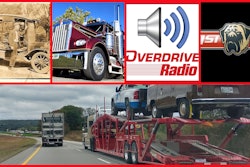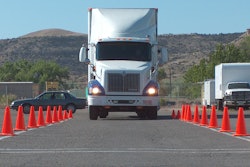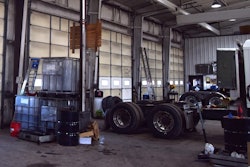Happy New Year to all of you! 2021 has no doubt been a strange one for our supply chains, with trucking shining as never before, in many ways. Yet at once, trucking seems to be getting more of the critique than any other of the multiple modes and businesses that connect all the supply chain parts. I have tried several times to point out that the issues in trucking that relate to driver retention are many, and that each needs to be addressed if real change is to happen. One of those issues is general driver training inadequacy.
It’s been a while, but regular readers may well remember that I proposed a graduated CDL and apprenticeship program in this story from 2018.
[Related: Modest proposal: Outlining a federal, graduated CDL]
Finally, at least it does seem we have the feds’ attention around some of these issues. The Department of Labor, in collaboration with the White House and the DOT, has kicked off a so-called “90-Day Trucking Apprenticeship Challenge” as of December 16. The effort hopes to stimulate the registered-apprenticeship model as a way to develop well-trained drivers on the road. The challenge asks employers to step up and commit to fast-tracking the advancement of new programs and increase existing ones through employer and labor partnerships to promote recruitment, retention, and bedrock return-on-investment in trucking.
So the challenge has been issued, or the gauntlet thrown down, but what exactly does that mean? The objective of building awareness in the power of apprenticeship sounds great. Procuring a commitment from employers, labor partners and/or industry associations to increase apprenticeship opportunities sounds great. Accelerating the process sounds risky. Yet demonstrating the potential of an apprenticeship program to expand opportunities sounds good as well. We still run into the issues that limit such programs – namely difficulty insuring newbie drivers and, more generally, money to pay those drivers for on-the-job training that is a prime feature of the registered apprenticeship.
There is no getting around the fact that insuring inexperienced drivers costs more than experienced drivers. That alone will keep many employers, particularly small trucking businesses, from developing a program. That leaves us with current employers already running training programs, some of which are predatory programs funneling new trainees into lease-purchase deals at unfavorable terms. Or current programs which have already proven to place trainees into questionable situations. For instance, running trainees as a team operation rather than trainer-trainee models that run as solo ops with the trainee behind the wheel for at least 3 hours of the trainer’s 14-hour duty window, and in the jump seat for at least seven hours of the trainer’s driving clock.
I feel like the best approach to apprenticeship might well be a federal partnership with owner-operator businesses that would not only teach an apprentice the responsibilities of a pro driver but also teach how a small business is run. Why does this make sense? It’s not just a matter of the owner-operator’s prevalence in trucking. Owner-ops take the best care of their equipment, generally speaking, doing more thorough pre- and post-trip inspections. On-highway, I’d wager owner-ops have better safety practices. One accident can be the difference between running a profitable business and taking care of the family – or being out of business completely and losing everything.









